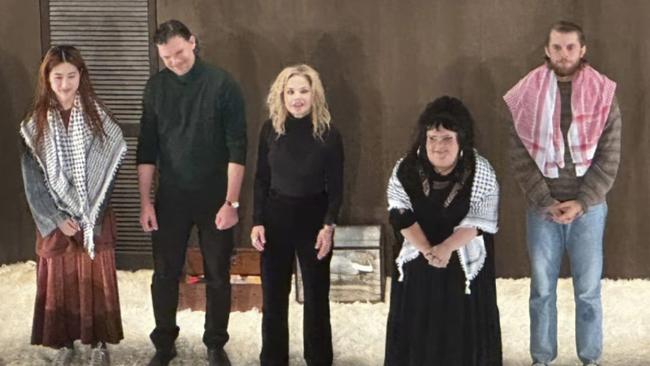
If we sign up for the experience we should not be surprised if we are shocked as well as entertained and, of course, sometimes reassured in our views. In that context, the protest at the end of a Chekhov play at the Sydney Theatre Company last weekend may ironically have done as much to test our moral choices on the war in Gaza as any news report.
A relatively minor incident compared with the huge pro-Palestinians rallies around the world has galvanised us at a time when we are being asked to hold our nerve as thousands die and Israel attempts to destroy a terrorist organisation that would destroy it.
For almost two months now we have wrestled with the geopolitics of what a “proportionate” response to Hamas barbarity might look like. This week the struggle has been over what a “proportionate” response to The Seagull protest might look like.
The challenge to our views on free speech versus moral certainty came not from the play itself but from the donning of the keffiyeh by three actors at the curtain call.
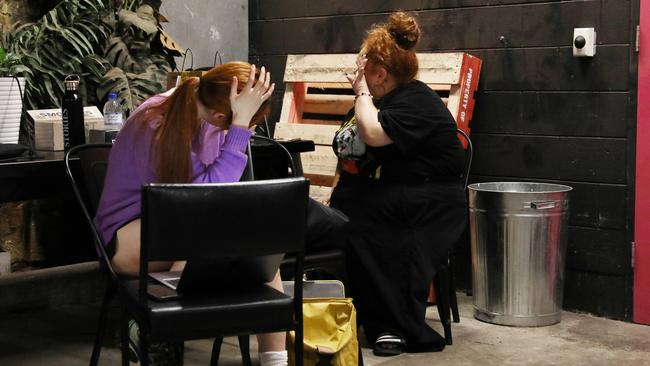
Yet the result was the same: far from art being a unifying force, as some claimed this week it ought to be, this theatrical event has divided the community. It has revealed how naive it is to assume people who share some views labelled as “progressive” would line up on the same side in a scarifying conflict such as this one. It’s a little like the assumptions that all women are feminists or all Indigenous Australians would back the voice.
Jews traditionally have been strong supporters of the arts – and of the creative freedom that theatre and dance and music require. They are disproportionately represented as makers and enablers in the arts, and in the days following the protest some exercised that power to demand a stronger response from the STC.
There have been resignations and, hovering in the background, awareness of the fragile interplay of donors and performance.
Only last year, several artists and arts organisations withdrew from the Sydney Festival because of Israeli embassy sponsorship seen as “art washing” of Israel’s treatment of Palestinians.
In 2014, the Sydney Biennale lost several artists because one of its major sponsors, Transfield Holdings, had a stake in a company running a detention centre. This time, the STC responded by cancelling Wednesday night’s performance of The Seagull and in a statement acknowledged its initial response had not been good enough. It went further, saying the STC must be a safe space for those who create the work and those who come along to watch.
In the modern workplace, that’s about ensuring that a diverse workforce – split by gender, belief, culture and skin colour – can coexist and thrive without prejudice and power getting in the way.
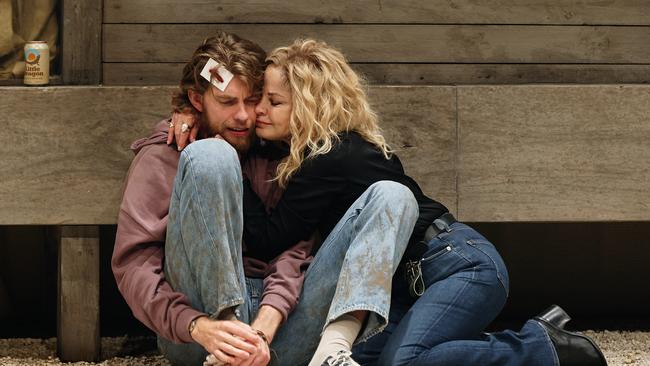
But what does safety mean for the creative industries? Does it mean quarantining unfashionable views on gender? Does it mean we cannot interrogate the Palestinian cause? Does it mean the arts should ignore the rising anti-Semitism that threatens more than 75 years of post-Holocaust understanding? When does safety become anodyne and ignorant of less powerful or acceptable voices?
That said, the three STC actors made a mistake in bringing their political views to work in the way they did.
Today’s employees are encouraged to “bring their whole selves” to the job but our tolerance for workplace expression of personal views is necessarily limited.
The condemnation of anyone appropriating the STC platform must cut both ways. Some might have welcomed actors waving the Israeli flag in solidarity but one assumes the STC would have come under attack from its pro-Palestinian patrons. The unknown, however, is how the company would have reacted.
In the febrile atmosphere of this crisis, last weekend’s protest will not be the end of pressure on organisations to take a stand one way or the other.
For many, like the thousands of schoolkids and others marching in our streets every weekend, there is no room for nuance and we are witnessing how anti-colonialism can rapidly morph into anti-Semitism.
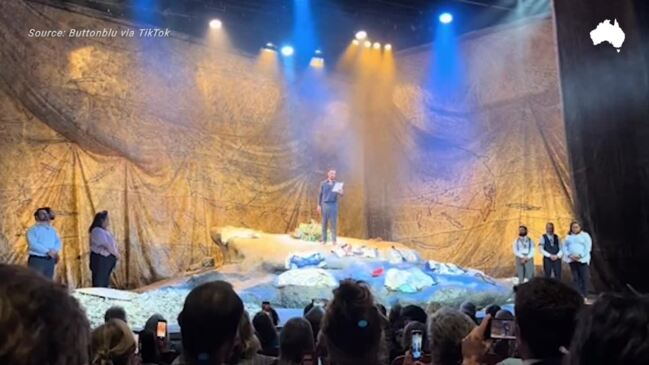
In a piece on the UnHerd website a month ago, Joel Kotkin, of California’s Chapman University, asked whether we are seeing “the end of the Jewish century”, whether “the great period of Jewish influence and efflorescence that started a century ago may be peaking”.
“Just as terrorists were able to breach Israel’s supposedly impenetrable defences, the forces of anti-Semitism have penetrated Western society, as young, educated progressives, including a few Jews, make common cause with Hamas and its allies,” he wrote.
“In political terms, at least, many Jews across the West feel abandoned, particularly by their traditional allies on the Left.”
Separating support for Israel’s actions from support for Jews was a given for many in the West for decades.
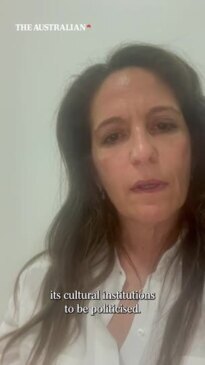
But the actions of Hamas on October 7 changed that, with Jews and non-Jews now arguing that because Israel is so central to Jewish identity there can be no difference in our response; that a vote for a ceasefire is a form of anti-Semitism. Yet, for many, separating these two ideas is as crucial as separating Hamas from the Palestinian people and their diaspora.
Beyond those moral dilemmas, there is no room for compromise on anti-Semitism, as German Vice-Chancellor Robert Habeck, a Green politician, noted in November. In a much-praised speech he called out anti-Semitism across Germany’s political spectrum – from the far right to “parts of the political left” and “among young activists”.
“Anti-colonialism must not lead to anti-Semitism,” Habeck said. “In this respect, this part of the political left should review its arguments and be sceptical of the great resistance narrative.”
On social media this week, one theatregoer noted in the context of whether people would drop their subscriptions to the theatre: “I am not going to chuck a hissy fit because 3 actors did something without the knowledge of the STC.”
But when the stakes are so high, the question for many is whether a hissy fit would indeed be a proportionate response.



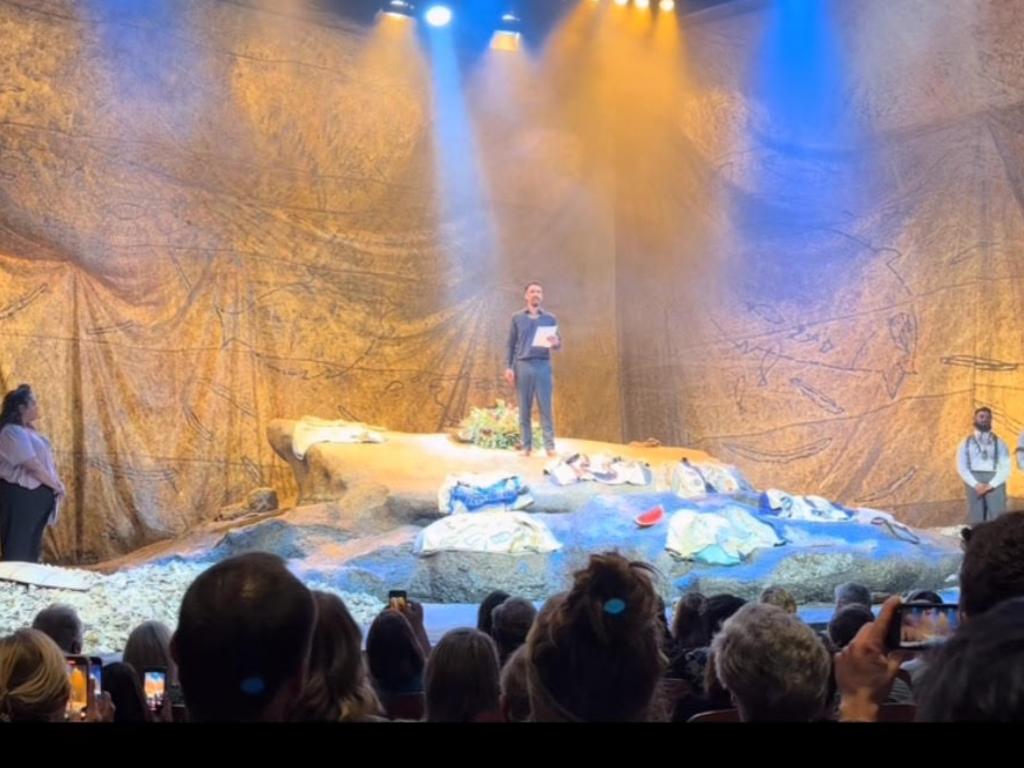
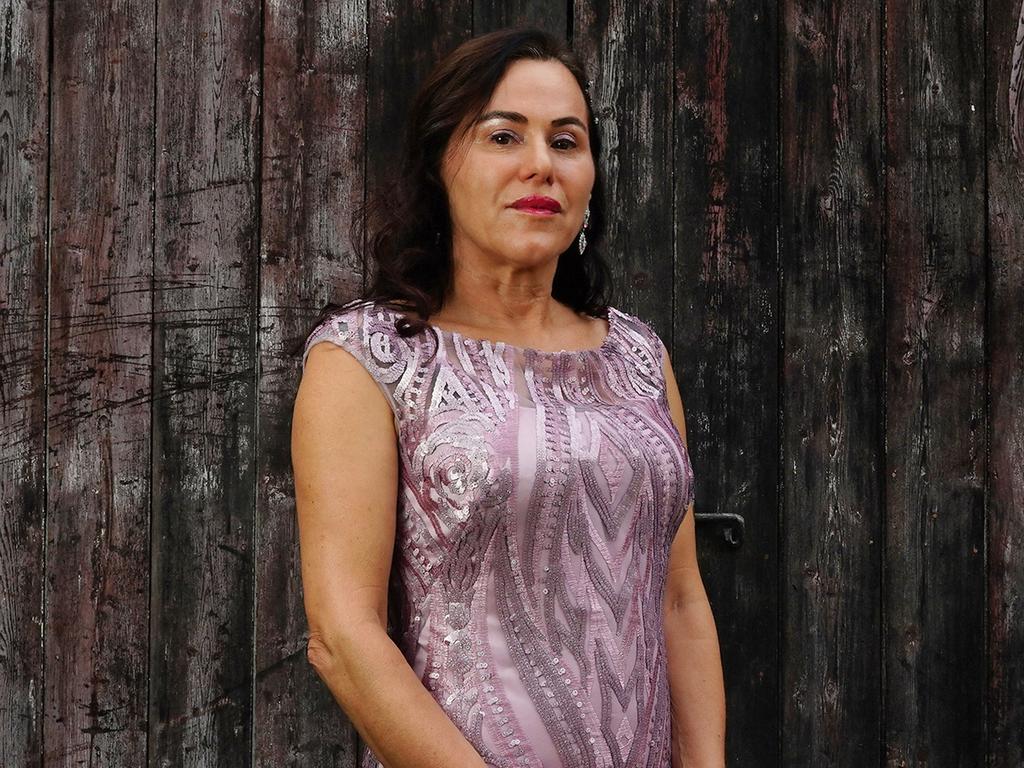
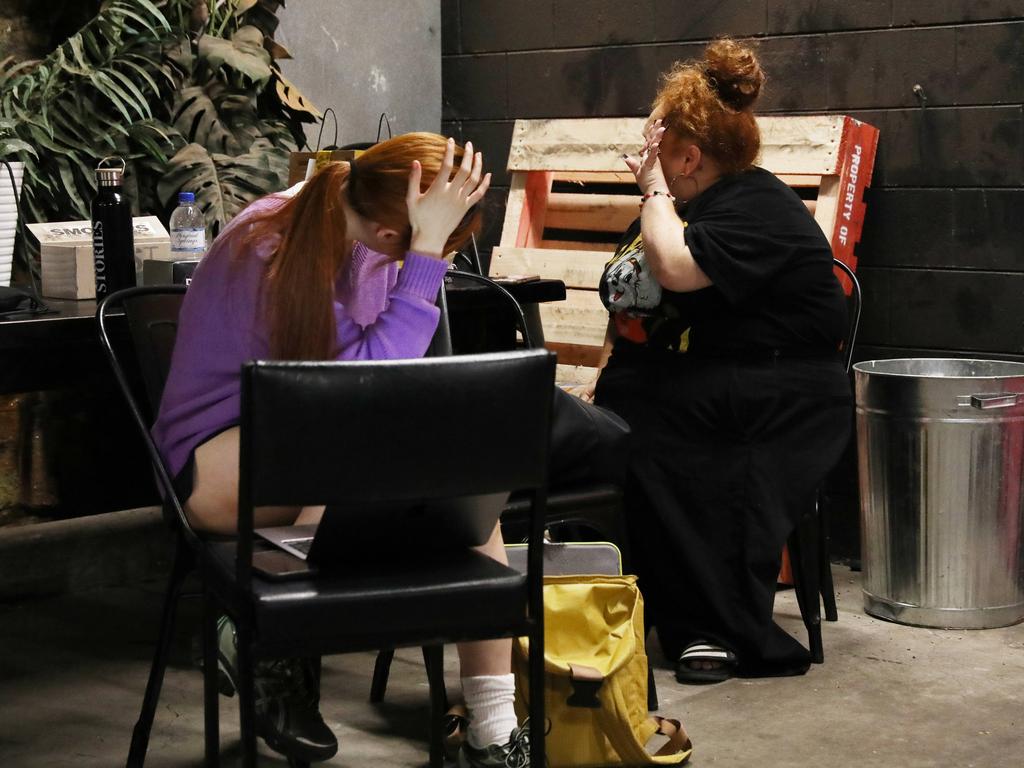


At its best, theatre, like all the arts, is a political exercise – disruptive, challenging and often dividing audiences. Generating strong emotions should be the point of art: it is an invitation to step into the unknown and to test our assumptions.